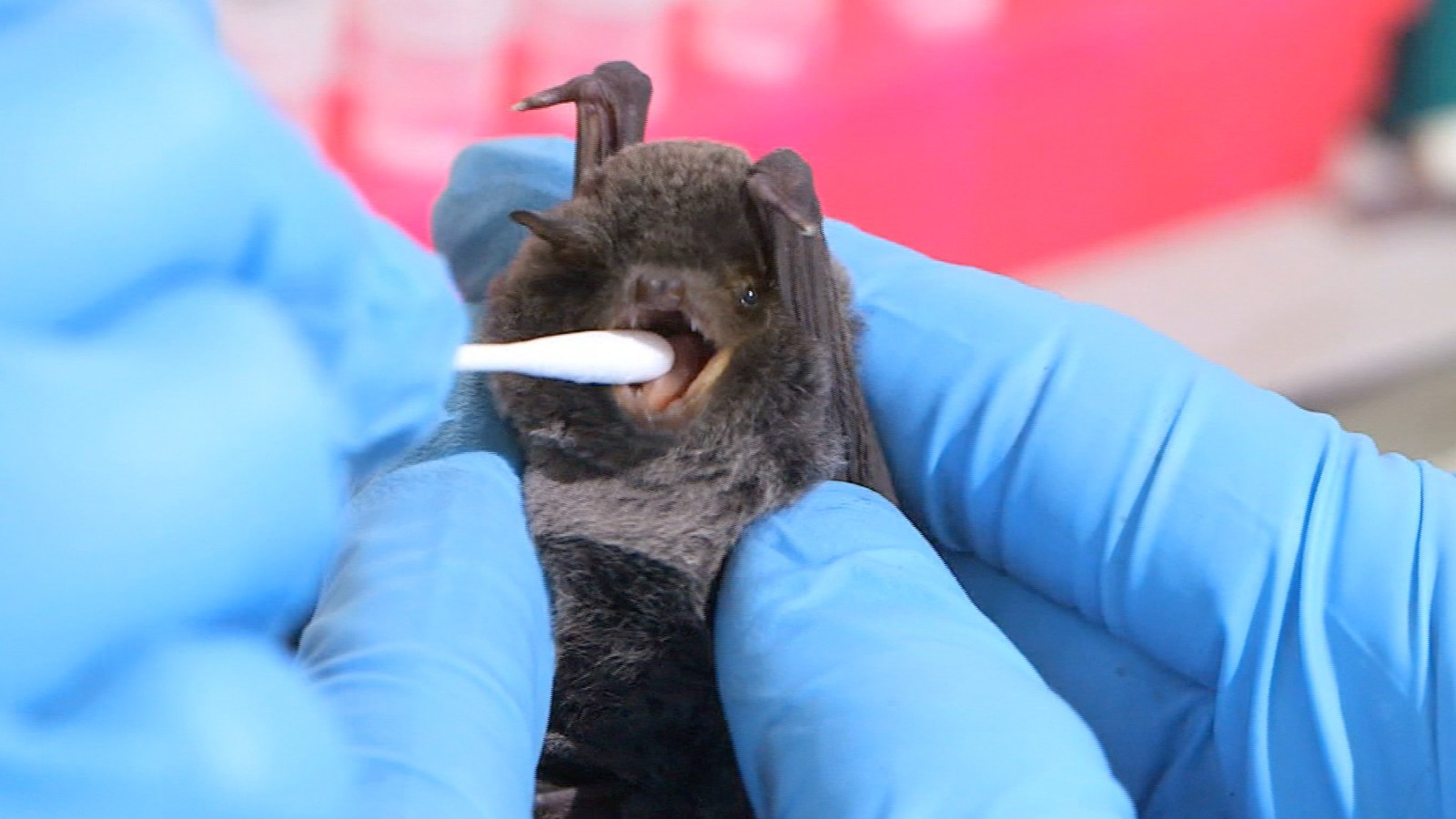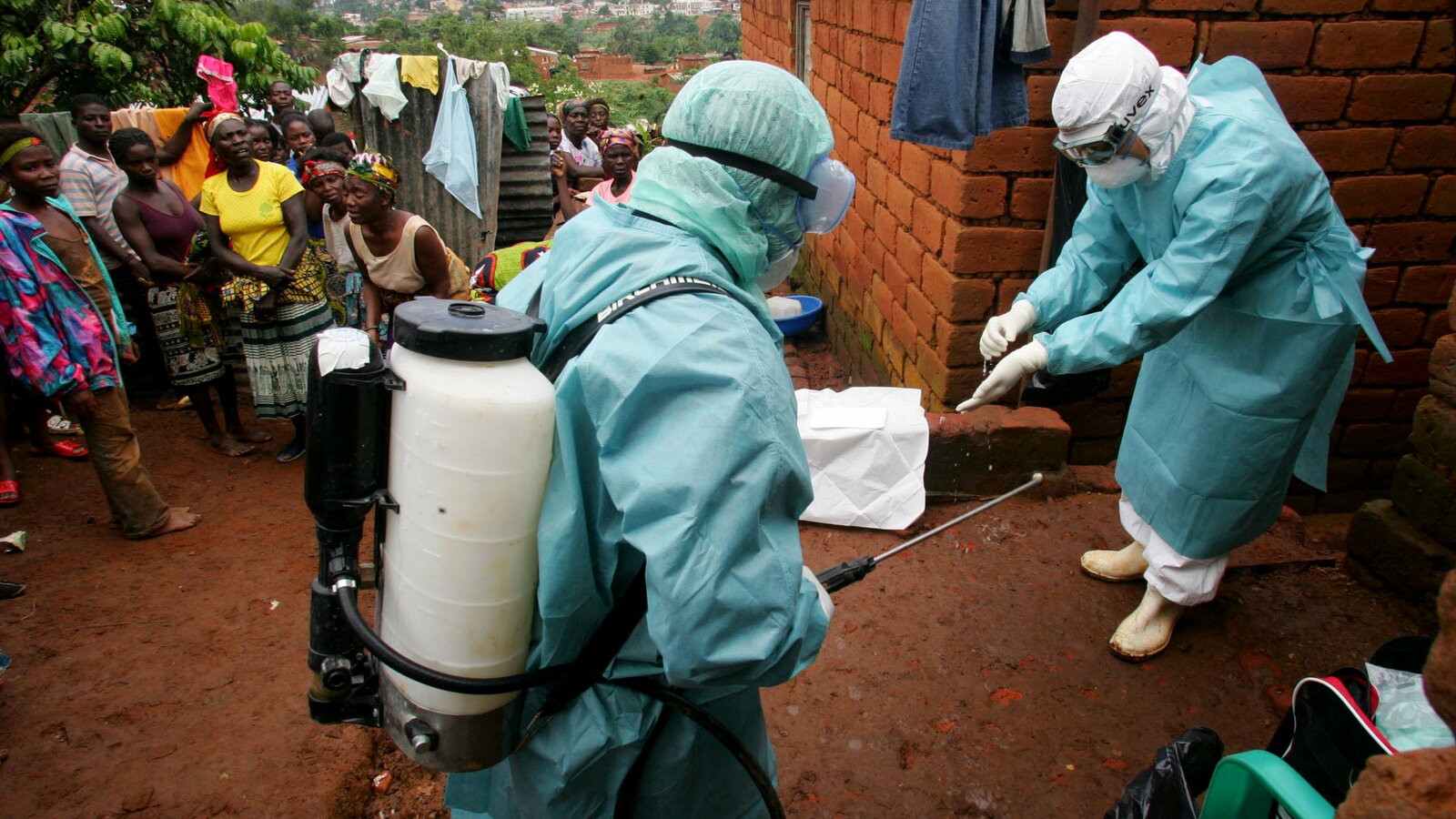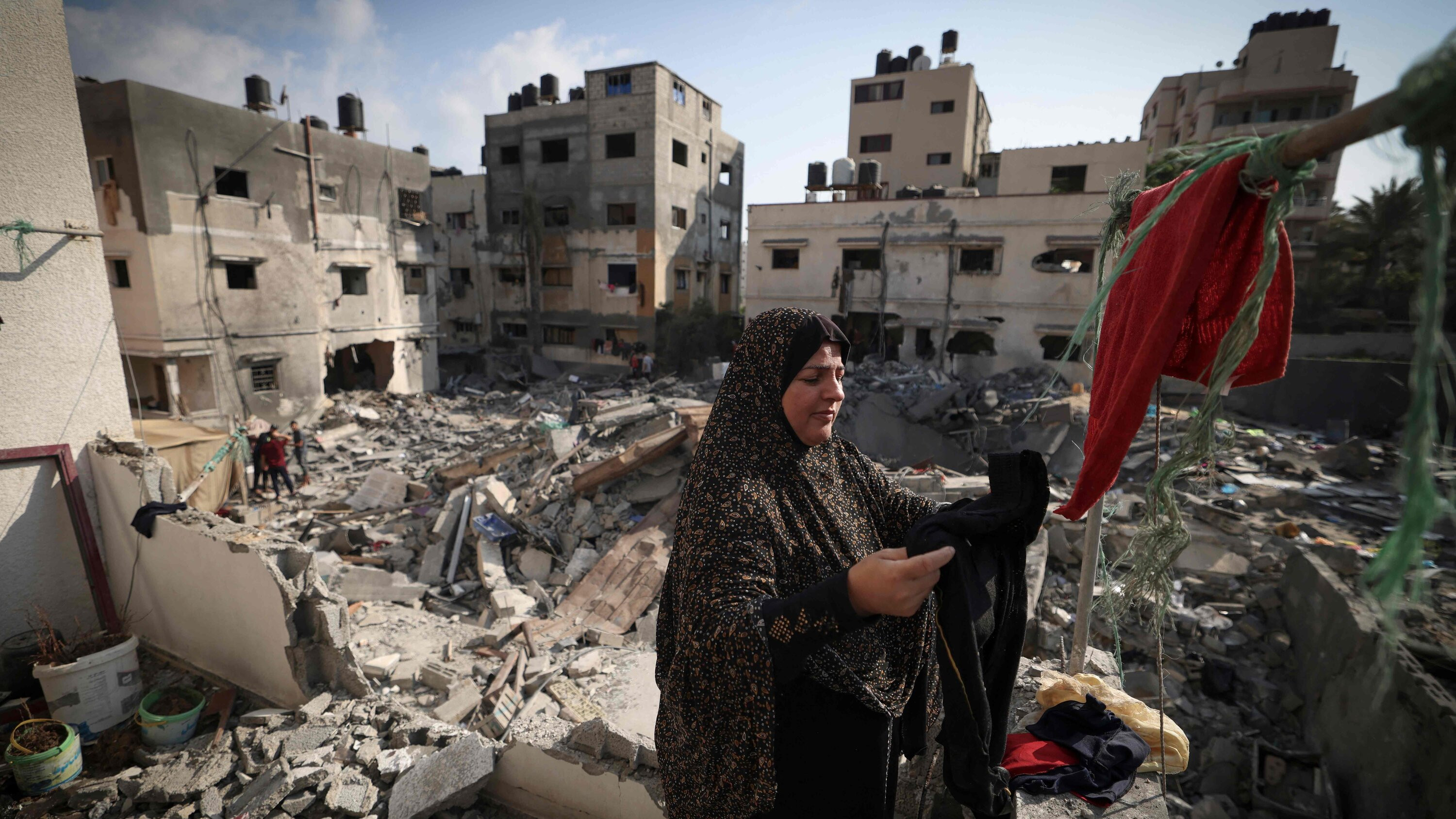Researchers are in a race against time to deploy vaccines and treatments against a deadly virus that has exploded in Rwanda. As of 30 September, the central African country has recorded 27 cases and 9 deaths caused by Marburg virus, a highly deadly relative of Ebola virus that also causes haemorrhagic fever, with most cases occurring among health-care workers in the country’s capital Kigali.
There are no approved therapies or vaccines against Marburg virus. But if the current outbreak continues — most are small and quickly contained — health officials and researchers hope to gather valuable data on the safety and potential effectiveness of vaccines and treatments. On 30 September, the World Health Organization (WHO) in Geneva, Switzerland, hosted a teleconference involving Rwandan scientists appointed by the government to run potential trials of vaccines and treatments and members of the Marburg virus vaccine consortium (MARVAC), a group of companies, non-profit organizations and researchers, according to a WHO spokesperson.
Broadbrush plans for trials were hashed out in the wake of a 2023 Marburg virus outbreak in Equatorial Guinea, which caused 12 deaths among 17 confirmed cases and another 23 fatal probable cases. But no experimental medicines were tested during the outbreak.
Ira Longini, a biostatistician at the University of Florida in Gainesville and MARVAC member, says that if the Rwanda outbreak continues, the plan is to trial at least one vaccine in a strategy known as ring vaccination. The approach — which showed the effectiveness of an Ebola vaccine in Guinea during the 2014–16 West African outbreak — involves immunizing contacts of an infected individual.
Vaccine Trials
A WHO ethics committee had previously approved plans for the vaccine trial, as well as one for treatments such as the antiviral drug remdesivir, which was tested against Ebola and COVID-19, and monoclonal antibody treatments that have shown promise in animals. The WHO spokesperson said the next urgent step is for the trials to be approved in Rwanda.
Several Marburg vaccines are in various stages of development. The furthest along is a candidate led by the Sabin Vaccine Institute in Washington DC, which uses a modified chimpanzee adenovirus to deliver instructions for cells to make a Marburg virus protein. A trial involving 40 healthy US participants found the vaccine safe and that it generated an immune response against the virus in most people1, and a larger trial in Uganda and Kenya is under way.
A spokesperson for Sabin says the group is working with Rwanda’s government, but did not say how many doses of its vaccine were currently available. In 2023, a WHO advisory committee named the Sabin vaccine as its top candidate for testing during a Marburg virus outbreak.
A similar vaccine, being developed at the University of Oxford, UK, was also named as a priority for testing during a Marburg outbreak. Teresa Lambe, a vaccinologist at Oxford leading the Marburg vaccine’s development, says that the vaccine has so far proven safe in the handful of participants who have received it in an ongoing UK trial.
Mark Feinberg, chief executive of the International Aids Vaccine Initiative in New York City, says there are currently no doses available of the Marburg vaccine his organization is developing — which is similar to an approved Ebola vaccine — but production is scheduled to start this week.
“The Rwandan health authorities are exceptionally capable, and I hope that they will be able to rapidly contain this outbreak,” Feinberg adds. “The risks of extension of the outbreak to adjacent countries is not insignificant and the consequences of this could be severe.”
The fact that clinical-trial plans are in place and other groundwork has been laid increases the odds that Marburg vaccines and treatments will be deployed in Rwanda, says Nancy Sullivan, a viral immunologist at Boston University in Massachusetts. But it’s likely that data on Marburg vaccines and treatments will need to come during multiple outbreaks.
“The idea now is that you just move forward and don’t worry that the outbreak will end before trial enrolment is complete,” Sullivan adds. “It’s just a piece of the overall trial.”
Fighting the Outbreak
Rwandan authorities have restricted funeral sizes for victims of Marburg virus in an effort to curb an outbreak of the highly contagious disease. Eight people have died during Rwanda's first outbreak of the virus, which was confirmed on Friday by the nation's health ministry.
Marburg, with a fatality rate of up to 88%, is from the same virus family as Ebola. It spreads to humans from fruit bats and then through contact with bodily fluids of infected individuals.
In new guidelines to halt the spread of Marburg, the health ministry said no more than 50 people should attend the funeral of a person who died from the disease.
“Normal business and other activities” can continue in the East African country, said the advisory, published on Sunday evening. However, it also urged the public to avoid close contact with “symptomatic individuals”. The ministry listed symptoms such as fever, headaches, muscle aches, vomiting and diarrhoea.
The virus can cause death through extreme blood loss. The health ministry’s guidelines said hospital patients would not be permitted visitors for the next 14 days.
Patients will also only be allowed one caregiver at a time, the guidelines said. In numerous developing countries, patients’ loved ones perform basic care tasks - such as washing and feeding - that are typically performed by a nurse in other countries.
On Saturday, when the official death toll was six, Rwanda's health minister said most of the victims were healthcare workers in a hospital intensive care unit.
Dr Nahid Bhadelia, director of the Boston University Center on Emerging Infectious Diseases, told the BBC’s Newsday programme that curbing the virus’s spread might be challenging as most reported cases had been in the densely populated capital city, Kigali, while previous outbreaks had often been in remote rural areas where they were easier to contain. However, she added that there was hope as Rwanda had “a lot better infrastructure and history of public health coordination that many other countries”.
Global Response
Rwanda said it was intensifying contact tracing, surveillance and testing to help contain the spread. The country’s health minister said on Sunday that officials were tracking about 300 people who had come into contact with individuals affected by the Marburg virus.
The authorities have urged the public to practise good hygiene, such as frequent hand-washing. This is the first time Marburg has been confirmed in Rwanda. Neighbouring Tanzania reported an outbreak in 2023, while three people died in Uganda in 2017.
Marburg hemorrhagic fever has killed 11 people in Rwanda, health authorities said Thursday, as the East African country searches for the source of an outbreak first traced among patients in health facilities. There are 36 confirmed cases of the disease that manifests like Ebola, with 25 of them in isolation, according to the Rwandan government’s latest update.
Rwanda declared the outbreak on Sept. 27 and reported six deaths a day later. Authorities said at the time that the first cases had been found among patients in health facilities and that an investigation was underway “to determine the origin of the infection.” The source remains unclear days later, raising contagion fears in the small central African nation. Isolating patients and their contacts is key to stopping the spread of viral hemorrhagic fevers like Marburg.
Testifying to growing international concern about the outbreak, two people were isolated in the northern German city of Hamburg after returning from Rwanda, where they had been in a medical facility with Marburg virus patients, the European Center for Disease Prevention and Control said in a statement on Thursday. Both tested negative for the virus, the ECDC statement said. German media reports said that concern about the virus led authorities to cordon off two tracks at a railway station where the two people had arrived. One was a young medical student who had felt symptoms of the disease and contacted doctors from the train.
In Rwanda, most of the affected people are health care workers across six out of 30 districts in Rwanda. Some patients live in districts bordering Congo, Burundi, Uganda and Tanzania, according to WHO.
At least 300 people who came into contact with those confirmed to have Marburg have been identified, and an unspecified number of them are now in isolation facilities, according to Rwandan health authorities. Rwandan Health Minister Sabin Nsanzimana said Thursday that the clinical trials for vaccination would start “within days” but failed to clarify which type of vaccine will be used.
He told journalists at an Africa Centers for Disease Control and Prevention briefing that Rwanda is screening everyone who presents fever, head and body ache symptoms and has so far tested 2,000 people with 5,000 more test kits expected to arrive in the country.
Preventive Measures
Rwandans have been urged to avoid physical contact to help curb the spread. Strict measures include the suspension of school and hospital visits as well as a restriction on the number of those who can attend funerals for Marburg victims. Home vigils aren’t allowed in the event a death is linked to Marburg.
The U.S. Embassy in Kigali has urged its staff to work remotely and avoid visiting offices.
Understanding the Virus
Like Ebola, the Marburg virus is believed to originate in fruit bats and spreads between people through close contact with the bodily fluids of infected individuals or with surfaces, such as contaminated bed sheets. Without treatment, Marburg can be fatal in up to 88% of people who fall ill with the disease.
Symptoms include fever, muscle pains, diarrhea, vomiting and, in some cases, death through extreme blood loss. There is no authorized vaccine or treatment for Marburg.
Marburg outbreaks and individual cases have in the past been recorded in Tanzania, Equatorial Guinea, Angola, Congo, Kenya, South Africa, Uganda and Ghana, according to WHO. The virus was first identified in 1967 after it caused simultaneous outbreaks of disease in laboratories in Marburg, Germany, and Belgrade, Serbia. Seven people died after being exposed to the virus while conducting research on monkeys.
A Cause for Concern
The outbreak in Rwanda has raised global concern due to the high fatality rate and lack of approved vaccines or treatments. The WHO has urged countries to strengthen their surveillance systems and prepare for potential outbreaks. As researchers race to develop effective vaccines and treatments, the world awaits to see how Rwanda will manage this unprecedented health crisis.


















